In recent years, the development of cross-border e-commerce has become increasingly fierce. Since 2015, China's cross-border e-commerce, as a new type of trade, is expected to become a new growth engine for China's trade. From the new tax exemption regulations that began in 2018 to the expansion of the list of tax preferential policies again in 2019, it is enough to show the country's ambition to promote cross-border e-commerce.
Not long ago, Amazon banned Chinese sellers over 50,000, and the sellers who were not affected were panic. The huge movement forced the Ministry of Commerce of China to come forward to uphold justice.
Under such a severe environment, Wu Bin, an old friend of Laogao E-commerce Club, the top ten angel investors in 2019, founding partner of Daosheng Capital, and founding shareholder of Vipshop, shared the theme of "Investment Opportunities under the Cross-border E-commerce E- commerce Club" at the 11th Anniversary Celebration of Laogao E-commerce .
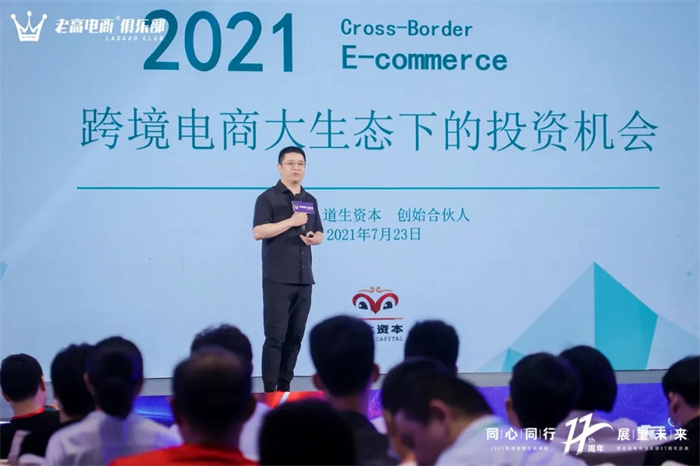
So in the eyes of capital celebrities, do China’s cross-border e-commerce have more opportunities?
1. Analysis of China's cross-border e-commerce ecosystem and development trends
There are no particularly veteran experts in the cross-border field in China, because the development cycle of the entire industry is not too long. No matter how good a cross-border e-commerce seller is, it is limited to individual countries.
The concept of cross-border e-commerce has emerged many years ago. Lantingji, which was originally known as the "first stock of cross-border e-commerce in China", was about to be sold. It was first introduced to Vipshop, but it did not invest after the argumentation. Later, the Seven Wolves were ready to move, but in the end it was bought by Aokang.
Cross-border is equivalent to a box of potatoes. Each potato has different shapes and has different strengths and weaknesses while acting independently. It is difficult for the United States to make it. Europe is smaller, Southeast Asia is smaller. Although Russia is very large, it only has St. Petersburg and Moscow. In general, either logistics is not good, there is no payment foundation, or the user base is too small, so the reality of cross-border e-commerce is very scattered.
The epidemic in 2020 has undoubtedly accelerated the development of e-commerce. It is difficult for you to return to the era of writing letters after making phone calls, and it is also difficult for you to stop shopping online. After decades of development, the United States, the United Kingdom, Germany, Spain and France have formed a good e-commerce ecosystem, with a very high market penetration rate and many opportunities for cross-border e-commerce.
In addition, the situation in Southeast Asia, the Middle East and South America is slightly worse. Although the scale reaches 9 trillion yuan, Taobao has 8 trillion yuan, and the growth rate is very fast.
At present, China's e-commerce penetration rate is high and its infrastructure is complete, resulting in fierce competition. While Taobao, JD.com, Suning and Vipshop are crowded with the track, they still give birth to platforms such as Pinduoduo, Douyin, and Kuaishou.
For cross-border e-commerce, which mainly focuses on exports, the transaction scale will reach 7.3 trillion yuan this year, mainly relying on the growth rate of the epidemic, but the growth rate will definitely stabilize next year.
2. New opportunities for China's export of cross-border e-commerce
(1) Sufficient talents
With our strong global supply chain, anyone who grew up from the domestic e-commerce environment is a marketing expert. In China, where the domestic marketing environment is fully internalized, talents are everywhere.
If we look purely at marketing methods, if Chinese people help foreign marketing, it will definitely be a dimensional reduction blow, because we are doing related research every day, and foreign countries have very weak abilities in this part.
(2) Supply Chain
Wu Bin has been in e-commerce for 23 years. He graduated from Oriental Communications in 1998 and joined Oriental Communications. Later, he started his business and founded 8-9 companies in 2007 and 2008.
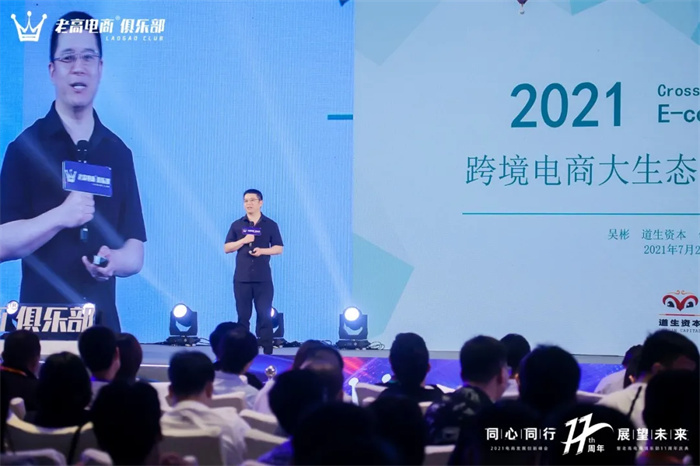
During this period, he felt that China's supply chain was very strong and was far ahead in the world. The speed of updates and iterations remained the same every year, especially with the arrival of live e-commerce, Tao Group has readjusted all the sideline tools.
Digitalization, informatization and then to future intelligence are the only way for supply chain growth. The current Toutiao and Kuaishou Group attach great importance to the supply chain and even trace the source to help sellers.
The growth of the supply chain starts with Pinduoduo. When the community sold vegetables and the supply chain restructuring process was indispensable. When Wu Bin used to invest in angels, the supply chain restructuring of the industry had just begun. Pinduoduo sells fruits, vegetables, and fresh food, which are very scattered things, and the shipping efficiency from the place of origin is very low.
Now they have restructured the supply chain, including forward warehouses, middle warehouses, and pickup, transportation, equipment sorting, packaging, etc., and the efficiency has been greatly improved.
(3) Capital support
Capital is very stupid and naive. One thing they often do is called vague and correctness. The so-called vague means not understanding very much. In fact, it is impossible to understand a team. After all, you cannot understand many things that are very particular about.
The so-called correctness means looking at the industry trend from other perspectives is coming soon and how fast is it? I don't know, but it will definitely arrive within three to five years.
For example, companies that have just appeared and can improve efficiency for users, have great opportunities and great opportunities. Because many industries around the world have not even reached the threshold for informatization. In contrast, in China, most industries have the most basic informatization, but have not yet been digitalized.
The concept of new retail has been around for many years. Offline retail has theoretically reached digitalization. For example, you can automatically collect accounts when selling things. This is indeed digitalization, but it has not yet met the standards.
For example, in order to help offline stores improve efficiency, you installed some cameras to understand which products customers like to pay attention to and how the conversion rate is. You connect these data with the cashier system and use facts to tell you which SKUs customers have observed, which ones they have taken to checkout, or have chosen other SKUs.
These two systems have not been connected, which means that when improving closed-loop efficiency, your digitalization and informatization do not meet the standards. This is also the point that Wu Bin wants to express. At present, many industries in China are very backward in digitalization and informatization, let alone intelligence.
In general, capital often invests according to vague and accurate standards. When you have no direction and cannot see how long the dividends of Kuaishou and Douyin will be left, you can see if capital is still blessing and adding.
(4) Policy
When he started his business, Wu Bin did not take the policy seriously, but now he is involved in the investment industry and must always pay attention to the policy.
In the past, when shopping online, it might take several days to arrive, especially products with high storage requirements such as probiotics, ice cream, cheese, etc. are even more unavailable. Now you can buy these products in two or three days, and you can even arrive in the morning and afternoon. Why? Because the country has opened a line in Ningbo and built a cold chain warehouse in the local bonded area, it can be directly sent to SF Express.
In the past, the customs only used large goods, which was called general trade. Now, from scattered orders to bonded warehouses and then to your home, the speed and efficiency have been rapidly improved. Thanks to national policies, in the future, online shopping for foreign products may also be available in just a few days.
This is also an opportunity, and only a few companies in China are doing it. Chinese people's consumption is constantly upgrading and they have many ideas about eating. Any good things abroad can be connected through brand operation. There are hundreds of thousands of brands with a long history waiting for domestic e-commerce to save them. The policies of cross-border cold chain e-commerce have been opened up, warehouses and other infrastructure have been completed, and operations are handed over to major e-commerce platforms to help takeout cheese and sell ice cream.
In addition to the above factors, China's export cross-border e-commerce has entered the stage of ecological integration of the entire industrial chain. The more extreme example is C2M. It is a platform that does its own platform and self-operate, and gradually forms an integrated ecosystem, integrating the entire industrial chain of brands and industry and commerce, and a purely informatized platform. It is also a special case that Wu Bin believes does not quite conform to the above views.
3. Overview of China's cross-border e-commerce investment and financing
Wu Bin told everyone that cross-border e-commerce is not developing that fast. For example, when inspecting cross-border e-commerce projects six or seven years ago, I found that the payment and logistics systems in Southeast Asia and the Middle East were very backward. After several years of development, 70% of the logistics are still cash on delivery.
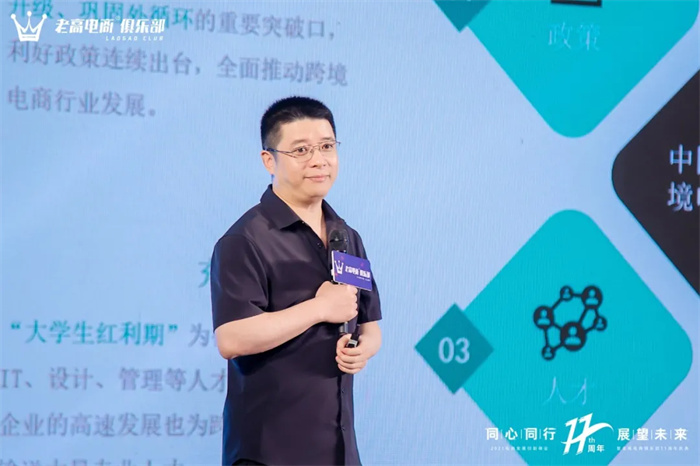
More than a decade ago, Russia's logistics was also a big problem, and it has not been solved until now, unless you only do the two cities of St. Petersburg and Moscow.
Cross-border e-commerce is a wonderful cause, but we cannot be anxious. China is the most powerful in this regard, so don’t think that their infrastructure, payment systems, and logistics systems are as sound as China.
In terms of the basic components of the cross-border e-commerce ecosystem, the operation forms of countries are very different. You think you have thoroughly understood the capital flow, information flow, logistics flow, and people flow, but in fact it is not. When Wu Bin used to invest in foreign companies, he would often make the local policy research clear, but in actual operation it was another matter. The rules were complicated and obscure, and he could not compete with the locals.
4. entrepreneurship and investment landscape of China's cross-border e-commerce industry
(1) Seller Tools
The concept of cross-border e-commerce came into existence 10 years ago, but why is it now riding on the east wind? One of the reasons is payment. There are very few domestic cross-border payment companies with valuations of billions, because they connect with foreign banks one by one, and the signing process is very slow.
Zhiyu, as a cross-border e-commerce company in Hangzhou, has established a logistics base in the Middle East, with a market value of hundreds of billions of US dollars. Through online tools, help foreign customers build accounts and build databases and find member management systems, making the entire process simplified from the perspective of logistics and payment.
Speaking of logistics, Wu Bin has invested in a cross-border e-commerce government platform in 8 provinces in China, among which this company has made the customs platform. After the entire platform is opened, the two-way circulation of domestic and foreign parcels has enabled the industry to meet the conditions for explosion.
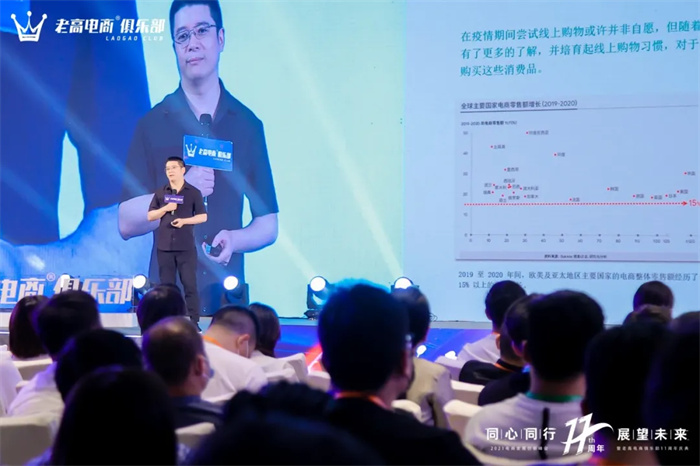
(2) Supply Chain
Youzan has deployed and integrated supply chains overseas. Most of these people originally worked on supply chains in China, such as live supply chains . When China's live broadcast industry rose, the integration capabilities of the domestic supply chain were very strong in terms of efficiency and scale.
This is very effective in dealing with foreign countries, including advertising. At present, there are many domestic advertising purchasing companies responsible for overseas advertising. A large number of companies have been established, and some have their headquarters specifically located in Singapore.
The information matching ability of advertising can be called great. All business costs are nothing more than land, workers, trade matching or advertising. The raw materials for food, clothing and housing are derived from products that grow in the land. With the advent of the future technological era, land has become less important.
Second, for workers, Hangzhou's labor with a salary of 10,000 yuan may be enough for 2,000 yuan in Northeast China ; the third is trade. To a certain extent, the advertising resources of Tencent, Alibaba and Baidu are to help you improve the matching efficiency, so advertising can promote very large businesses, with a very high upper limit .
There is a unique set of experience in purchasing traffic in China. In such a fierce environment in China, there is probably no problem going abroad. For example, when shipping LCL, merchants cannot mail packages one by one, but will sort out and sort through special transfer services according to the nature of the goods and destination, and concentrate the goods from the same destination into a certain quantity and assemble them into the box, so as to achieve quick and cost-effectiveness.
For example, cross-border e-commerce can build its own official website, or sell goods on Amazon, build its own brands, and become a traffic seller. It is called a Class II e-commerce company in China. By placing advertisements on the page, it can view the conversion rate.
5. Cross-border e-commerce ecosystem focuses on investment tracks
These are probably the same for each track. Each track is full of players. Investors will divide each track into N refine stages and analyze the corresponding situation based on specific data.
In the past six months, investment in the cross-border e-commerce field has been very active. In the past two years, there are more platforms, such as comprehensive service providers, or SaaS, logistics, payment, and basic systems. In the past two years, these platforms have gradually become brands.
When it comes to SaaS, Chinese people have the natural advantage of SaaS because the domestic competition is fierce and there are many tricks. If they can’t spend money on playing in China, then the whole world will have no playability.
However, China and abroad have different methods of doing things. When connecting with foreigners, they can do whatever they say they want. Adding one more function can completely charge additional money. When doing SaaS in China, you will find any function you want without adding more money. This is why domestic SaaS is always losing money.
Compared with this, cross-border warehousing and logistics were slightly better. If Aocon had not purchased Lanting Jishi, then the Seven Wolves would definitely grab food. Because to sell goods to all parts of the world, global warehousing and logistics must be equipped. Building warehouses abroad is not like building them at home, and all the approval procedures and other procedures will take N years. Just like Zhiyu mentioned earlier, the progress of building a factory in the Middle East is very slow.
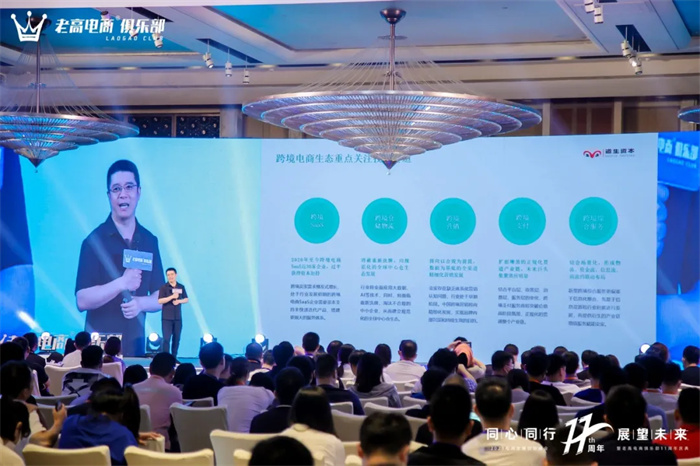
As mentioned earlier, foreign marketing is really a "peasant science", but there are still many opportunities to be meticulous in cross-border payment, comprehensive services and transshipment services.
6. Case analysis of cross-border e-commerce segmentation track
The maternal and child brand Hibobi has locked in the Middle East market and entered many overseas markets such as Saudi Arabia and Arabia. The Middle East has unified belief and language and a lot of demographic dividends. Hibobi has grown very fast from maternal and infant to clothing and toys through the official website channel, and has now reached the B+ round.
At that time, Wu Bin's several companies around 2007 all made official websites, but in the end Alibaba seized the market share, resulting in the decline of all official website companies . Now, because they lack the troubles of private domains, they all have their own business, which is very different from the current platform model. Although they also study Alibaba and Kuaishou, their proportion is very small.
Most Hibobi export brands are diverted through various media and sold on the official website, because a sound e-commerce system is not so easy to establish for them, so Shopping.com can also be regarded as a mid-to-high-end brand in the local area.
When you think the product is difficult to sell in the country, you can consider joining Shopping.com. The products sold on Pinduoduo are all mid-range goods there. This year, Shopping.com's sales reached more than 400 billion yuan, a year-on-year increase of 50%. Now there are not many platforms that have grown by 50% in a quarter, which shows how popular it is.
Of course, the popularity of Shopping.com is inseparable from the help of the epidemic. Secondly, our Chinese cross-border e-commerce has gone out, causing a blowout growth.
Mogu, a global cross-border cold chain brand service provider, has been responsible for helping foreign brands open up highways to enter the target market. Just like the cheese ice cream case mentioned above, the goods directly enter the cold chain in the bonded area and then are delivered directly to the home through SF Express.
The year before yesterday, we communicated with the government and set up a pilot program to connect the cross-border cold chain through customs and Cainiao. Currently, JD.com, Kuaishou and Toutiao are in contact with it.
Global multi-scenario online language chat social APP - Huashi Technology. Many domestic e-commerce companies know third-party customer service systems. The artificial intelligence machine seats they can provide can automatically answer many customer questions, which is a very common function in China. In foreign countries, many logistics still pay on cash on delivery. Before delivery, they will definitely call to confirm whether the address is correct. This type of service can help customers confirm address information, which is very popular.
The so-called cross-border overseas travel is not limited to e-commerce, but also more supporting services can be provided. In addition to SaaS, CRM can automatically notify users to receive coupons, saving a lot of labor.
跨境供应链综合服务提供商——乾丰供应链,这家企业帮助国内七八个口岸建立了完整的跨境电商平台。换句话讲,这一家企业可以帮助一个小国家建立一整套跨境系统,因为在国内经过海关、跨境电商、政策的研究以及各项功能的打磨,这个水平放在一个小国家里可以称得上是无可匹敌。
Daosheng Capital invests in goodness, China's things are cheap and good, the people are particularly hardworking, and there are many opportunities for cross-border e-commerce. It is not just about selling goods, but about providing various basic services with great prospects.







![#Laogao E-commerce Newsletter# [E-commerce Morning News on December 23]](/update/1608685375l497937785.jpg)
![#Laogao E-commerce Newsletter# [February 1 E-commerce Evening News]](/update/1675242646l942748492.jpg)


 EN
EN CN
CN
